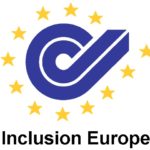 |
The European Commission (in short EC) offers money for organisations. The money has to be used for projects helping Europeans. More than 360 organisations asked for the money. Inclusion Europe (in short IE) was one of the organisations chosen. IE’s project is about safety on the Internet It will let people with intellectual disabilities know about:
|
Inclusion Europe (IE) was among the 22 organisations selected by the European Commission (EC) to receive an action grant under the Fundamental Rights and Citizenship programme. IE’s project, titled Safe Surfing! Data protection for young people and adults with intellectual disabilities, ranked 7 out of more than 360 applications from across the Member States.

The project’s three major objectives revolve around enhancing awareness levels and abilities of people with intellectual disabilities regarding the protection of their personal data. Furthermore, IE plans to develop a method of online training as a means of reaching out to individual young people and adults with intellectual disabilities. Safe Surfing will also support the implementation of existing legislation on data protection, and, if adopted, the dissemination of the major changes of the Data Protection Reform Package (COM (2012)).
Through effective support, education and training, young people and adults with intellectual disabilities can live independently, and actively take part in community life. The right to full inclusion and participation in society is guaranteed by the UN Convention on the Rights of Persons with Disabilities (UN CRPD), ratified by the European Union.
Full inclusion in society also means full inclusion and participation in the digital sphere. In fact, social media as well as online or mobile services can offer a lot of support to this group of citizens. Therefore, the past years have seen an enormous increase of people with intellectual disabilities being present and active in the online communications medium. However, little attention has been paid to their specific support needs for protecting their personal data.
Article 8 of the Charter of Fundamental Rights gives everyone the right to the protection of personal data. Current legal capacity legislation, lack of awareness, as well as accessibility issues may infringe the protection of personal data of some people with disabilities.
Another aspect of the current situation is focused on countering negative social attitudes towards people with intellectual disabilities end their lack of awareness about the reach of information in the digital world. For example, even accessing groups or websites with easy-to-read information may identify a user as having an intellectual disability and thus publicise protected personal information. IE believes the only appropriate solution to these issues is to provide individuals with intellectual disabilities with the personal support and training they need to decide for themselves which data and information they want to share with others. They also need information and training on their rights to data protection, practical ways to implement these rights and on possibilities to seek redress, all issues IE is planning to address through the Safe Surfing.
In addition to individual training and awareness-raising, IE will also focus its efforts on the implementation of national and European policy processes. The combination between practice, innovation and policies yields the highest possible impact at European and national levels. Therefore, Safe Surfing will develop policy input on the implementation of national and European data protection legislation, for example by addressing the accessibility of redress mechanisms or raising the issue of informed consent by young people and adults with intellectual disabilities.





